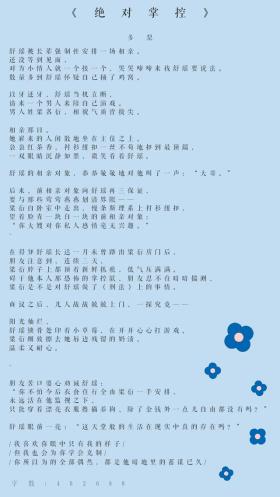
这两个词都是形容词,但它们在使用上有微妙的差异。
1. interesting 和 interested 的用法
这两个词在描述“有趣”这个概念时,虽然都作为形容词使用,但强调的焦点不同。其中,interesting 指的是某物(或人)本身有趣,强调的是主动性质,常用于修饰物。而 interested 则强调被动意义,其主语通常是人,常做表语,后接介词 in,构成 be interested in… 结构,表示“对……感兴趣”。
例如:
I am very interested in the interesting story.
我对这个有趣的故事很感兴趣。
As the conversation went on, I found she was interesting to talk to.
随着谈话的继续,我发现她是一个很有趣的谈话对象。
You can …play games, swim, meet interesting people.
你可以……玩游戏,游泳,会见有趣的人。
She’s an interesting writer, and I am interested in the subjects that she writes about.
她是一个有趣的作家,我对她写的题材很感兴趣。
2. be interested in sth(sb),be interested in doing sth,be interested to do sth 的用法
这些表达方式表示某人喜欢、有趣、热衷于做某事,或者有兴趣做某事。例如:
I'm very interested in history.
我很喜欢历史。
I'm not interested in a romantic relationship.
我对谈情说爱不感兴趣。
I am not really interested in politics.
我并不真正热衷于政治。
Alex is not interested in girls yet.
亚历克斯对女孩子还不感兴趣。
Now she's a teenager, she's starting to be interested in boys.
她现在已经是个十几岁的姑娘了,开始对男孩子感兴趣。
She's interested in him for purely mercenary reasons.
她对他感兴趣完全是为了贪图金钱。
He's interested in witchcraft and the occult.
他对巫术魔法情有独钟。
They were more interested in courtship and cars than in school
比起上学,他们对谈恋爱和汽车更感兴趣。
或许你是唯一一个对听球赛感兴趣的人。
我们都希望被人注意到,希望有人有兴趣倾听自己的心声。
他有三十封邮件来自名叫伊丽莎白·加拉赫、持有合适护照的人。更有意思的是,有上百个加拿大人表示有兴趣把名字改成伊丽莎白·加拉赫。
但很快,迪克对和别人玩游戏更感兴趣了,所以他开始逃课。
汤姆有兴趣为无家可归的孩子筹款,但他没有和陌生人说话的勇气,所以就只是安静地坐着。
他从小就对丝绸之路很感兴趣,但现在终于有机会体验了。
他们希望消费者有兴趣保留他们的产品,以防仍有价值的东西被扔进垃圾堆。
我们很想听听你对这个话题的看法。
我有意见见她。
3. 其他 -ing 和 -ed 形容词的用法
除了 interesting 和 interested,还有许多其他的 -ing 和 -ed 形容词,如:amazing/amazed,annoying/annoyed,boring/bored,exciting/excited,disappointing/disappointed 等。这些词在使用上也有类似的规律,即 -ing 形容词强调事物的主动性质,而 -ed 形容词强调被动意义。
例如:
“你觉得你的新邻居怎么样?“她很有趣,但她对自己的美貌有点失望。”
他就是这么一个惹人烦的人!
她觉得自己的工作很无聊。
孩子们在屋子里很快就待不住了。
我开始对这整件事情感到非常厌倦。
他们等他等得不耐烦,就悄悄走了。
我觉得好无聊。我们回家吧。
结婚16年后,他们已经渐渐彼此厌倦了。
但弗雷德觉得很无聊,想要回家。
昨晚我出去了,但没有呆很久。我感觉无聊透了。
转载请注明来自广州玛斯顿影音有限公司,本文标题:《interesting与interested用法解析 》









 京公网安备11000000000001号
京公网安备11000000000001号